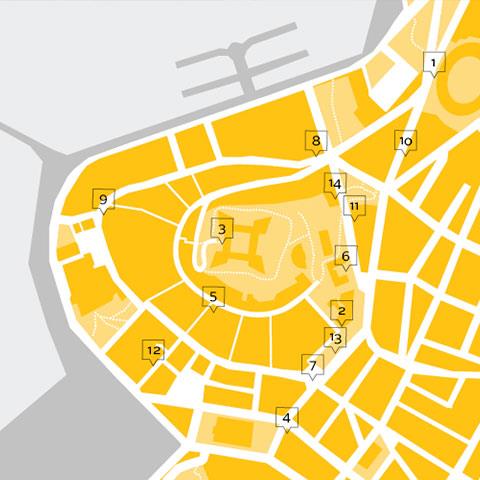This morning at Valli Cinema, in the thematic section Work in Progress, short clips from the current Croatian film production, which are mostly in post-production, were screened. Moderator Boško Picula called this one of the most festive part of Pula Film Festival and invited Daniel Rafaelić, director of Croatian Audiovisual Centre (HAVC), to join him on stage. Rafaelić noted that, other than the 10 films which were screened, three other directors have not sent in their films: Veljko Bulajić, who is finishing a film about World War II set in Istria, which he calls his best film yet, Antun Vrdoljak and his film Gotovina, and Nevio Marasović and his film Comic Sans, which he filmed early this year.
He emphasised that, considering the recent paralysis and earthquakes it experienced, HAVC was careful not to work against directors, and that completing the films will be done in blocks of three films, with relatively fixed deadlines. With this pace, Pula Film Festival should abound in new accomplishments next year. He thinks that this type of insight into the current state of Croatian filmmaking is interesting to the public, as it gives an idea about the process of filmmaking and demystifies the idea of a film suddenly thrown into the programme at the Arena. When asked about the work of HAVC, founded some 10 years ago, Rafaelić said that for a long time there was a dream of a film institute of sorts in Croatia, a machine working in favour of film and taking care of promoting film and realising all of the accompanying activities, which used to be in the competence of the Ministry of Culture. If the Centre disappeared, Croatian cinema, almost a hundred years old, would be put in danger, and that can not be allowed. He added that, considering the expensiveness of making a film, a supported film culture needs to survive, and it also implies responsibility towards that same money and the public.
Following the introductory words, 10 short announcements were screened (including clips and trailers), from the following films: The Eighth Commissioner (directed by Ivan Salaj), F.20 (directed by Arsen Anton Ostojić), All Alone (directed by Bobo Jelčić), Deep Cuts (omnibus directed by Filip Peruzović, Filip Mojzeš, and Dubravka Turić), Aleksi (directed by Barbara Vekarić), The Working One (directed by Damir Čučić), For Good Old Times (directed by Eduard Galić), The Bay (directed by Bruno Pavić), Pirates of Omiš (directed by Ivan Perić), and Happy End (directed by Anđelo Jurkas).
The crew of Eighth Commissioner - director Ivan Salaj, actress Nadia Cvitanović and DOP Slobodan Trninić were present at the screening. The Eighth Commissioner is based on the novel by Renato Baretić, in which the eighth commissioner in a row, sent by the government, tries to organise local elections on the most remote Croatian Island of Trečić, where the local population is heavily resisting change. The rights for the film were bought some six or seven years ago, but the filming took place this spring on Hvar and Brač, which was a challenge for the DOP, as the story happens in winter.
F.20 by Arsen Ostojić was presented by the DOP, once again Slobodan Trninić; and even though the film is completely opposite to The Eighth Commissioner, both visually and genre-wise, Trninić managed very well in this dynamic drama/psychological thriller with a young cast, filmed in Zagreb and at Zrće.
All Alone is a drama by Bobo Ječić about the struggle of a father for his child after his divorce, played by Rakan Rushaidat.
The omnibus Deep Cuts was presented by producer Dijana Mlađenović, who noted that the film was screened as part of Director’s Fortnight at the Cannes Film Festival 2017. She explained that the teaser for the first film is so short because they wanted the omnibus, based on the short stories by Olja Savičević Ivančević, Ksenija Kušec and Romano Simić, to remain a surprise. The original idea was for it to be a regional project, but after 160 submissions and two screenwriting workshops, they narrowed the number to three Croatian authors.
Seeing how the author is working on the film and was unable to come to the screening, the film Aleksi was presented by Nadia Cvitanović, the actress who also appears in the film The Eighth Commissioner. The film Aleksi is intriguing, especially in the character of nervous, hysterical and swearing Nataša Janjić with four children, young Tihana Lazović, and the older charmer Sebastian Cavazza, who takes the two women and children sailing among the Dalmatian islands.
Damir Radić, film critic turned actor, participated in the presentation of the minimalist, almost Seidl-esque film The Working One, directed by Damir Čučić. Radić welcomed the people attending from the audience, and one of the main roles of the blind character who interviews strangers at the hotel is Vojin Perić of the Blind Theatre Company - New Life.
For Good Old Times was presented by director Eduard Galić, a film veteran, and his son, who is also the producer, Dominik Galić. The screenplay for the film about the private drama among several friends in the context of social change in the 1980s, with the soundtrack by Jura Stublić, was written by the producer himself, with no public funding.
The anti-utopian, almost experimental, and ecological-apocalyptic film The Bay, directed by Bruno Pavić, was presented by the producer, Ivan Perić, who expressed great concern about the presence of asbestos in the wider Split area, and the large number of illnesses it causes.
Ivan Perić also presented another one of his projects, this time in the role of director, and he was joined by producer Dragan Kovačević. Pirates of Omiš is a documentary with fictional reconstructions, about the conflict of the pirates of Omiš with the Venetian navy and the problems they caused in the Middle Ages. The film is characterised by great production conditions in lieu of Discovery Channel and History Channel. The producer announced possible collaboration with Italian RAI, as well as possible expansion of the pirate theme to cover pirates of the Mediterranean, from Genova and Africa.
Anđelo Jurkas presented the last instalment of his trilogy on male-female relationships, the film Happy End, and has emphasised the importance of team work and co-authorship in the making of the film. The novelty is a more pronounced critique of politics, religion, and media sensationalism. Almost three quarters of the film are complete, and a part of the story will be filmed in Los Angeles and at Zrće. Jurkas is also planning a fourth film.






